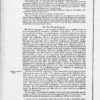
Matthew Jones, “On Nineteenth-Century Welsh Literacies, and the ‘Blue Book’ Education Reports of 1847”
This essay considers the 1847 Reports of the Commissioners of Inquiry into the State of Education in Wales, better known as the “Blue Books,” which alleged that Wales’s Welsh-speaking population was benighted, immoral, superstitious, and barbarous, and in need of English-language education. These factors were said to be compromising the country’s modernization while also, in more quiet ways, threatening British society more broadly. The Welsh language was the primary target, and it was deemed antiquated and unfit for commercial and imperial life. Through the Welsh language, the Blue Books also inveighed against Welsh motherhood, Wales’s increasing Nonconformity, and its recharged and growing literary culture. I place the Blue Books in a larger nineteenth-century Welsh context, focusing especially on how rising rates of literacy and religiosity across the country countered the Blue Books’ primary claims. I discuss with particular emphases the Welsh Calvinistic Methodist movement, the antiquarian movement, the revived eisteddfod literary festival, and the influences of Welsh women in Welsh society and as Welsh mothers. Furthermore, I argue that the Blue Books borrowed much colonialist rhetoric then in fashion that disparaged Irish, Indian, Chinese, and African people. With this in mind, the Blue Books fit in among contemporary colonial documents, and they construct the Welsh in similar manners to how other non-English populations were during this moment of Victorian Britain.
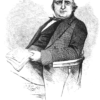
Janice Schroeder, “The Publishing History of Henry Mayhew’s London Labour and the London Poor”
Versions of Henry Mayhew’s massive social survey London Labour and the London Poor appeared in several publishing formats, including newspaper column, weekly serial, live stage show, and bound volume. This article traces the republication and remediation of London Labour alongside Mayhew’s repackaging of his interviews with London “street-folk” from 1849 onwards. I offer a succinct, accessible account of the complex publishing history of the text, from print newspaper column to digital edition.

Deborah Epstein Nord, “On Augustus Egg’s Triptych, May 1858”
These three paintings representing the decline of a family as the result of the wife’s presumed infidelity cannot be read in strictly linear fashion, as if they followed the narrative structure of serial fiction. Rather, a reading of the painting that takes into account the spatial and iconographic relationship between the three panels yields the complex and open-ended meaning of the triptych’s story.
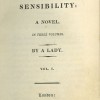
Jill Rappoport, “Wives and Sons: Coverture, Primogeniture, and Married Women’s Property”
Prior to political agitation for the reform of married women’s property laws, nineteenth-century fiction emphasized primogeniture (the common law doctrine of consolidating wealth in the hands of eldest sons) alongside coverture (the common law doctrine that marriage voided a wife’s separate legal identity) in order to show how both contributed to women’s economic marginalization. The reform movement, however, focused its attention on coverture, and by the time of the 1870 Act, fiction begins to divorce its sympathy for women’s subjugation in coverture from its treatment of women’s condition with respect to primogeniture. This case study of novels by Jane Austen and George Eliot suggests that, as coverture comes under closer scrutiny, primogeniture is no longer showcased as one of women’s most significant economic disadvantages. Instead, the claims of primogeniture begin to appear as an argument against women’s rights to property.
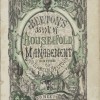
Susan Zlotnick, “On the Publication of Isabella Beeton’s Book of Household Management, 1861″
This essay examines Isabella Beeton’s Book of Household Management, which has been called “the most famous English cookery book ever published.” It contends that Beeton’s work shares the same concerns as the nineteenth-century realist novel, and that The Book of Household Management captures the contradictions, anxieties, aspirations and fantasies of middle-class domesticity and thereby offers a vision of family life that is novelistic in its complexity. Specifically, the essay focuses on Beeton’s representation of the middle-class housewife as a domestic manager responsible for maintaining the family’s class identity by creating a “tasteful” lifestyle. In doing so, it concludes that the line from the Victorian Mrs. Beeton to the Martha Stewarts of our own day is a fairly direct one.
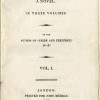
Anne D. Wallace, “On the Deceased Wife’s Sister Controversy, 1835-1907”
For more than 70 years the English engaged in heated public debate about whether a man should be able to marry his deceased wife’s sister. While twentieth-century scholars either ignored this controversy or attributed it to Victorian obsessions with psychological and/or cultural repressions of incest, the documents of the debate suggest that anxiety about the anomalous legal and economic autonomy of unmarried adult sisters drove the controversy. Recent interest in the Marriage with a Deceased Wife’s Sister (MDWS) debates seems fueled by increasing scholarly perceptions of “family” and its various relational terms, including “sister,” as historically and culturally embedded constructs that vary both within and across historical/cultural sites. Re-examined through this lens, the MDWS debates can be understood as negotiating competing ideals of “family” and “household” in which the adult unmarried sister either provided valuable material and/or affective support of the marriage or represented a disturbing intrusion of labor into the domestic space. For literary scholars, the MDWS debates signal the necessity of reading representations of family and, specifically, sibling relations without assuming the stability and/or uniformity of ideas and practices of “family” during the period.
